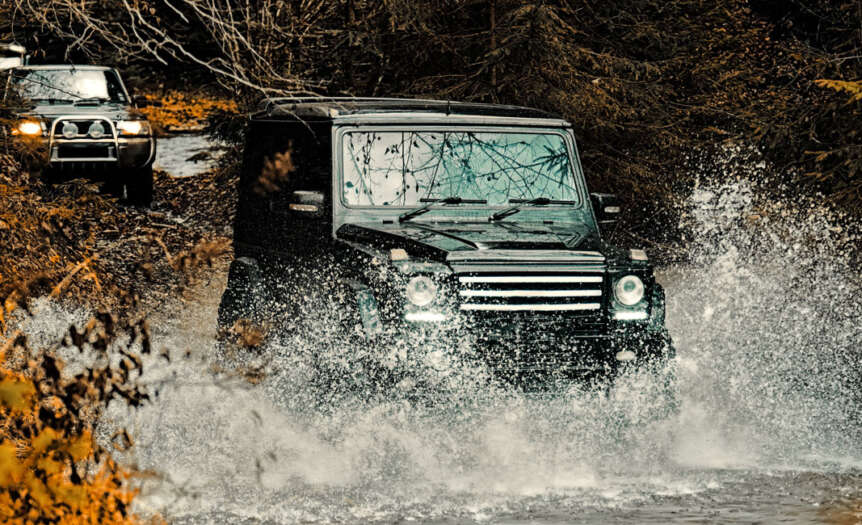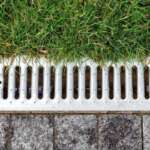When we say off-roading is all-terrain driving, we mean it. Jeeps, the gold standard of off-road vehicles, deftly handle dirt, mud, rocks, and sand. A well-lifted Jeep can even traverse bodies of water—an important capability to have when off-roading in south Florida. As a Jeep driver, this feature is exciting, but don’t get too excited—you’re not on one of those Ducks up at the Wisconsin Dells. You do have some limitations that keep your Jeep well short of being fully amphibious. Here’s what to know about off-roading through water so you can enjoy the excitement safely.
Remember That Rivers Can Swell
As you tread upon the same trails and ford the same rivers, you may think you have an idea of the depth of the bodies of water you cross. If you’re off-roading while it’s raining, however, you should know that the water levels may have risen above what your Jeep can handle. Bodies of water that already posed a challenge can become downright impassable during or after rainfall. Stay out of water that rises above the midpoint of your tires. Overall, use your best judgment when facing down water.
Know Your Beds and Adjust Tires Accordingly
The big difference between Jeeps and those amphibious Ducks is that your Jeep must drive along the riverbed or lake bed—a distinction that might not exactly float your boat. Underwater surfaces vary in texture, from hard and slippery rocks to viscous mud and sand. Knowing which lies beneath the water is critical to crossing safely. While all off-roading calls for lower tire pressure than highway driving, a treacherous sandy bottom calls for even more traction to traverse the water successfully. That means airing down the tires even further for maximum surface area along this tough surface.
Walk the Track First
Crossing water in your Jeep conjures up visions of speeding over hills, going down into a riverbank, and splashing down with perfect momentum. What you should know about off-roading through water is that it’s not that perfect. Before you hit the water, walk through to determine whether your Jeep can cross it safely. If you’re not comfortable walking it, don’t get comfortable driving it.
Be Prepared To Pull Yourself Out
Off-roading excursions can call for lots of extra supplies. Long-hauling overlanders like to pack a gas can. You need first-aid kits and emergency gear if something should go wrong. A spare tire is a must. If water crossings are a part of your adventure, then you should pack recovery gear for getting unstuck from sandy beds or deep water, such as tow ropes or winches.










 Deering Estate
Deering Estate
 Massage Envy South Miami
Massage Envy South Miami
 Calla Blow Dry
Calla Blow Dry
 My Derma Clinic
My Derma Clinic
 Sushi Maki
Sushi Maki
 Sports Grill
Sports Grill
 The Healthy Kitchen
The Healthy Kitchen
 Golden Rule Seafood
Golden Rule Seafood
 Malanga Cuban Café
Malanga Cuban Café

 Kathleen Ballard
Kathleen Ballard
 Panter, Panter & Sampedro
Panter, Panter & Sampedro
 Vintage Liquors
Vintage Liquors
 The Dog from Ipanema
The Dog from Ipanema
 Rubinstein Family Chiropractic
Rubinstein Family Chiropractic
 Your Pet’s Best
Your Pet’s Best
 Indigo Republic
Indigo Republic




 ATR Luxury Homes
ATR Luxury Homes


 2112 Design Studio
2112 Design Studio
 Hamilton Fox & Company
Hamilton Fox & Company
 Creative Design Services
Creative Design Services
 Best Pest Professionals
Best Pest Professionals
 HD Tree Services
HD Tree Services
 Trinity Air Conditioning Company
Trinity Air Conditioning Company
 Cisca Construction & Development
Cisca Construction & Development
 Mosquito Joe
Mosquito Joe
 Cutler Bay Solar Solutions
Cutler Bay Solar Solutions


 Miami Royal Ballet & Dance
Miami Royal Ballet & Dance
 Christopher Columbus
Christopher Columbus
 Pineview Preschools
Pineview Preschools
 Westminster
Westminster
 Carrollton
Carrollton
 Lil’ Jungle
Lil’ Jungle
 Frost Science Museum
Frost Science Museum
 Palmer Trinity School
Palmer Trinity School
 South Florida Music
South Florida Music
 Pinecrest Orthodontics
Pinecrest Orthodontics
 Dr. Bob Pediatric Dentist
Dr. Bob Pediatric Dentist
 d.pediatrics
d.pediatrics
 South Miami Women’s Health
South Miami Women’s Health

 The Spot Barbershop
The Spot Barbershop
 My Derma Clinic
My Derma Clinic




 Miami Dance Project
Miami Dance Project

 Rubinstein Family Chiropractic
Rubinstein Family Chiropractic
 Indigo Republic
Indigo Republic

 Safes Universe
Safes Universe
 Vintage Liquors
Vintage Liquors
 Evenings Delight
Evenings Delight





 Atchana’s Homegrown Thai
Atchana’s Homegrown Thai
 Baptist Health South Florida
Baptist Health South Florida

 Laser Eye Center of Miami
Laser Eye Center of Miami
 Visiting Angels
Visiting Angels
 OpusCare of South Florida
OpusCare of South Florida

 Your Pet’s Best
Your Pet’s Best





 HD Tree Services
HD Tree Services
 Hamilton Fox & Company
Hamilton Fox & Company


 Creative Design Services
Creative Design Services